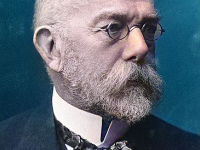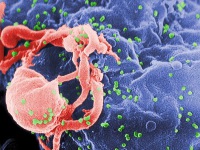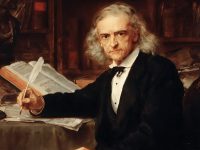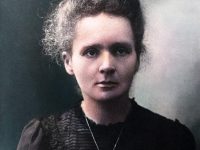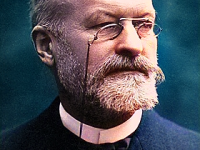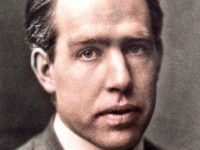Robert Koch and his Fight against Tuberculosis
On December 11, 1843, Robert Koch, the founder of modern bacteriology, was born. He is known for his role in identifying the specific causative agents of tuberculosis, cholera, and anthrax and for giving experimental support for the concept of infectious disease. As a result of his groundbreaking research on tuberculosis, Koch received the Nobel Prize in Physiology or Medicine in 1905. “When the doctor walks behind the coffin of his patient, sometimes…
Read more

